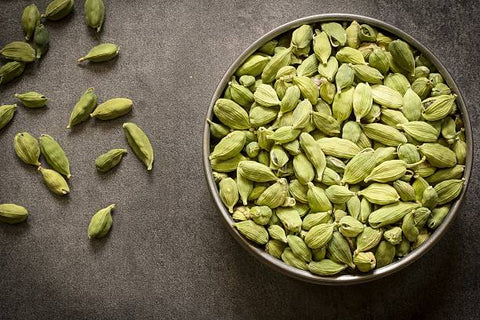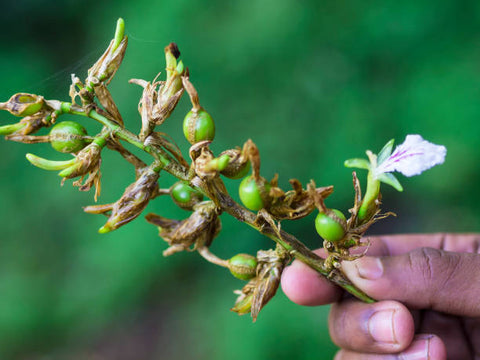Cardamom, popularly known as Ela or Elaichi in Hindi, is a versatile spice with a rich history and an array of culinary and medicinal applications. In this comprehensive guide, we delve into the world of Ela, exploring its origins, uses, benefits, and potential side effects.
Overview:

Ela, or cardamom, is a spice native to the Indian subcontinent and is recognized for its unique and versatile flavor. It is one of the world's most expensive spices due to the labor-intensive harvesting process. There are two primary types of cardamom: green and black. Green cardamom is the most common variety used in cooking, while black cardamom has a smokier flavor and is typically used in savory dishes.
Usage and Benefits:
-
Culinary Delight: Ela is a staple in Indian cooking and is used in both sweet and savory dishes. It adds a fragrant, slightly sweet, and spicy flavor to curries, rice dishes, desserts, and beverages.
-
Digestive Aid: Ela is well-known for its digestive properties. It can help alleviate indigestion, bloating, and gas. Chewing on a few seeds after a meal can promote better digestion.
-
Aromatic Agent: Cardamom's pleasant aroma makes it a popular choice for flavoring teas and coffees. Chai masala, a blend of spices including cardamom, is a beloved beverage in India.
-
Anti-Inflammatory: Some studies suggest that cardamom may have anti-inflammatory properties, potentially beneficial for conditions involving inflammation.
-
Fresh Breath: Chewing on cardamom seeds can help combat bad breath, making it a natural breath freshener.
- Antioxidant Rich: Ela is a source of antioxidants that may help protect cells from damage caused by free radicals.
- Traditional Medicine: In Ayurvedic and traditional medicine, cardamom is used to treat various ailments, including respiratory issues, urinary problems, and anxiety.
Potential Side Effects:
While Ela is generally safe for consumption, excessive use can lead to some side effects:
* Allergic Reactions: Some individuals may be allergic to cardamom, experiencing skin rashes or other allergic symptoms.* Gastrointestinal Issues: Consuming too much cardamom can lead to gastrointestinal discomfort, including diarrhea.
* Drug Interactions: Cardamom supplements or high doses of the spice may interact with certain medications. If you're on medication, consult a healthcare provider before adding cardamom to your diet in large amounts.
In Conclusion:
Ela, or cardamom, is a versatile spice deeply ingrained in the culture and cuisine of the Indian subcontinent. It offers a unique flavor profile, potential health benefits, and a rich history in traditional medicine. When used in moderation, it can enhance the taste of your culinary creations and contribute to your overall well-being. However, as with any spice or supplement, it's advisable to enjoy it in reasonable quantities and consult with a healthcare professional if you have concerns about its effects on your health or interactions with medications.
Author: Nikita Vishnoi BCA












